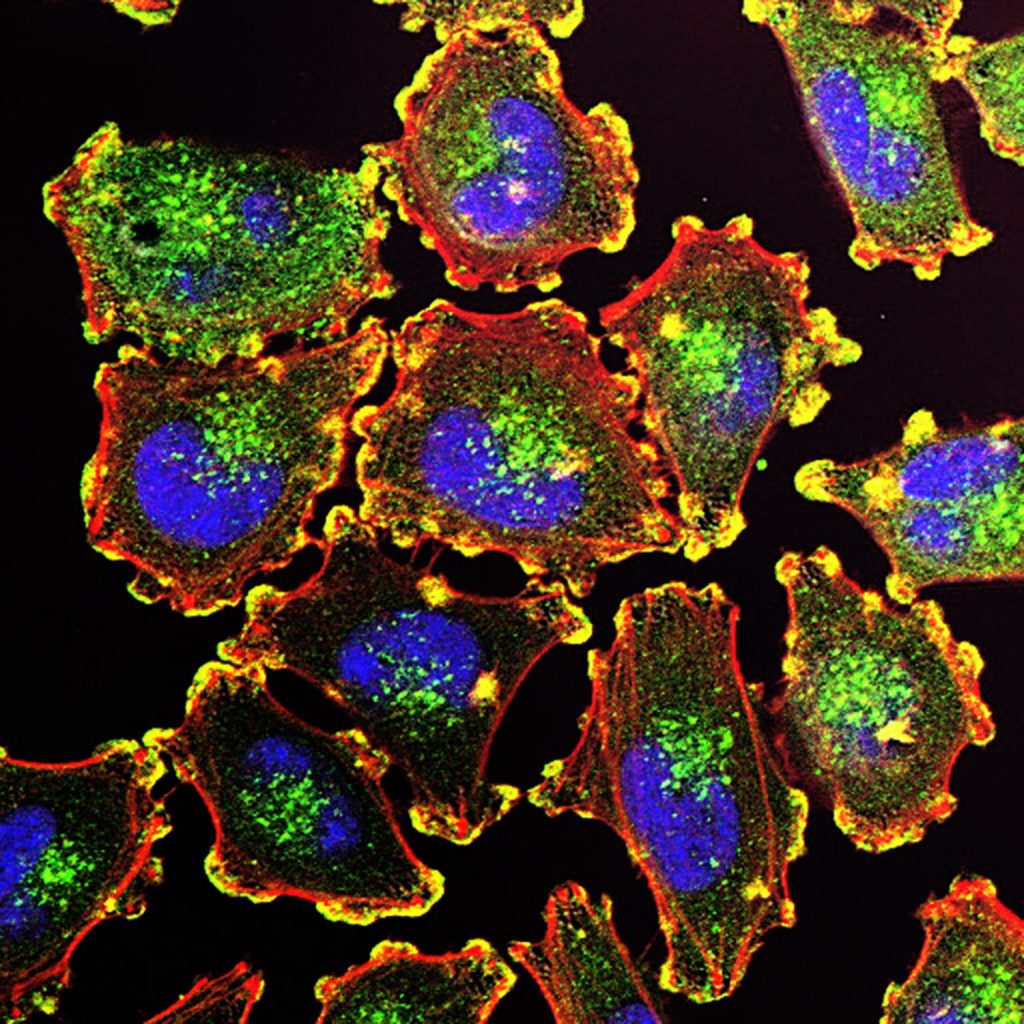
Researchers have identified a protein which explains why some tumours metastasise, contributing to a better understanding of the process in certain types of cancer.
In a study published in Frontiers in Oncology, researchers focused on MFSD1 – the mammalian relative of a protein they had previously identified as affecting cell migration in fruit flies. created mouse cancer cells lacking the protein. Without the protein, cells travelled much faster, suggesting that MFSD1 prevents the cells from moving. The team tested their theory in living mice with breast, colon, and skin cancer. “In the absence of MFSD1, there was a strong increase in metastasis,” said lead researcher Professor Daria Siekhaus.
“We wanted to know why lower MFSD1 levels were beneficial to the tumour apart from allowing them to move more freely. As cancer cells travel through the blood for example, they experience a lot of mechanical stress,” explained first author Marko Roblek.
So the researchers performed a stress test on cancer cells with and without the protein. Using a tiny rubber scraper, Roblek tried to scrape the cells off the surface of the Petri dish in which he had grown them. While the cancer cells with MFSD1 quickly died under the mechanical stress, those without the protein tended to remain intact. Without the protein, the team concluded, certain tumour cells could more easily enter the bloodstream and find their way to other parts of the body. In another experiment, the researcher tested the cancer cell’s resistance to nutrient starvation with a similar result. Again, the cells lacking MFSD1 survived for longer.
The protein MFSD1 appeared to cause the cells’ reaction to starvation and mechanical stress by affecting specific receptors located at the cell surface. These receptors, known as integrins, ensure the cells stick to each other and the extracellular matrix. The cell produces these receptors, transports them to the cell surface and back inside the cell. If a tumour cell lacks MFSD1, they fail to recycle a certain type of integrin. “The result is that the cells stick less to the surrounding tissue and each other, which makes it easier for them to migrate,” said Prof Siekhaus.
Anonymised patient data supported this, showing a correlation between the level of MFSD1 and the patient’s prognosis. “We’ve seen that patients suffering from specific forms of breast, gastric and lung cancer who had lower levels of MFSD1 had a worse outcome. A high level of MFSD1 seems to be protective – it works like a suppressor of tumor metastasis,” said cancer researcher Roblek.
To optimise therapy for their patients, doctors are already analysing the expression of certain genes. Now, they can also look for the gene encoding the protein MFSD1. “If this marker becomes more established, doctors can use it to help classify how aggressive the cancer is and to decide between different treatment options,” suggested Prof Siekhaus.
In future studies, the team wants to focus in detail on how the protein functions on a molecular level and is curious to learn if artificially raising the amount of MFSD1 could help suppress the spread of certain tumours. The long term goal is to examine if it can be used as a therapeutic target.
Source: EurekAlert!

